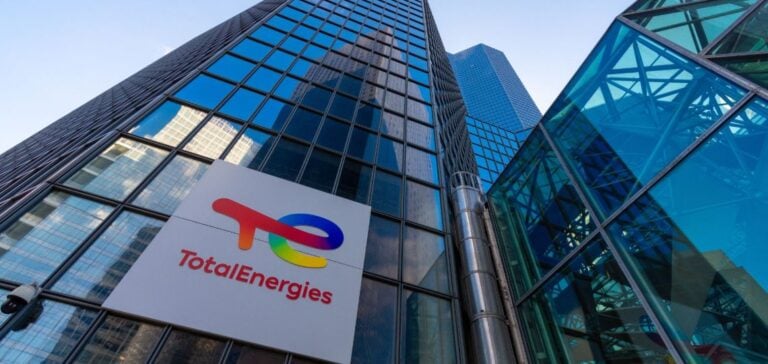After its recent withdrawal from the 11B/12B offshore block, the French oil major TotalEnergies is now focusing on developing its exploration project in the Deep Water Orange Basin (DWOB). Located approximately 200 kilometers off South Africa’s coast, this block covers an area of 15,000 km² and holds strategic potential for the region’s energy reserves.
On November 26, reports confirmed that TotalEnergies had engaged the consulting firm SLR to conduct an environmental impact assessment. This step is critical to meet South Africa’s regulatory requirements before initiating exploration activities. The group’s South African subsidiary, TotalEnergies EP South Africa (TEEPSA), had already secured approval from local authorities in 2023 to explore the northern part of this area.
A Favorable Regional Context
TotalEnergies’ growing interest in the DWOB aligns with a global surge in interest from oil and gas players in the Orange Basin. This basin extends beyond the maritime borders between South Africa and Namibia. Significant discoveries made by Shell, Galp, and TotalEnergies itself on the Namibian side have increased the region’s appeal to multinationals.
The DWOB offers a unique opportunity to diversify energy sources amid high global demand while exploiting a largely untapped region. However, the economic prospects of this project are accompanied by criticism from environmental organizations.
Growing Environmental Opposition
TotalEnergies’ exploration activities in South African waters have been controversial, mainly due to their potential impact on local communities and marine ecosystems. In March, the environmental advocacy groups Green Connection and Natural Justice filed a lawsuit with South Africa’s High Court to block another TotalEnergies project on offshore block 5/6/7.
Activists argue that the affected areas host sensitive marine biodiversity and that oil operations could negatively impact the livelihoods of fishing communities. These concerns could once again hinder TotalEnergies’ ambitions for the DWOB, even though the company has pledged to consider these issues in its approach.
Perspectives for TotalEnergies
Despite legal and social challenges, TotalEnergies appears determined to continue its development in southern Africa. Its recent commitment to an environmental impact study underscores its intent to secure the necessary regulatory approval for DWOB operations.
With support from South African authorities and expertise gained through its operations off Namibia’s coast, TotalEnergies could position the DWOB as a key lever for its strategy in sub-Saharan Africa. However, balancing economic imperatives with environmental concerns remains a significant challenge for this project.





















